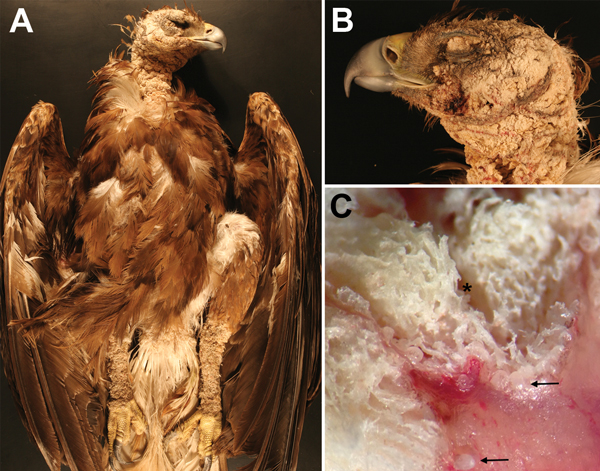Volume 20, Number 10—October 2014
Dispatch
Knemidocoptic Mange in Wild Golden Eagles, California, USA
Figure 1

Figure 1. Golden eagle found grounded in King City, California, USA, during August 2013 (eagle 3). A) Photograph of diffuse crusting and thickening of the head, neck, and legs. B) Photograph showing severe obliteration of the skin over the eyelid and ear. C) Dissecting microscopic cross-section of the affected skin, showing thick trabeculae of keratin deposition (*) and white to transparent mites (arrows). Original magnification ×.
Page created: September 22, 2014
Page updated: September 22, 2014
Page reviewed: September 22, 2014
The conclusions, findings, and opinions expressed by authors contributing to this journal do not necessarily reflect the official position of the U.S. Department of Health and Human Services, the Public Health Service, the Centers for Disease Control and Prevention, or the authors' affiliated institutions. Use of trade names is for identification only and does not imply endorsement by any of the groups named above.